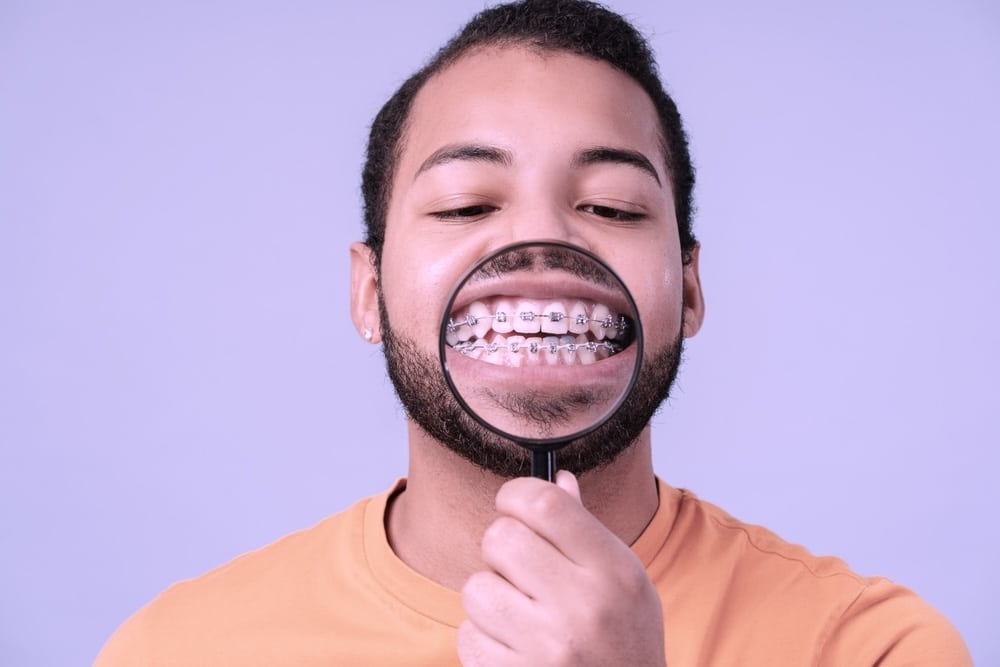Blog > New Tax Laws > Are Braces Tax Deductible? Read This
Are Braces Tax Deductible? Read This
March 14, 2025 - Friendly Tax Expert

When it comes to filing taxes, the process can feel overwhelming, especially when considering which expenses tax deductible qualify. If you or your child needed braces, you may be wondering if the cost can help reduce your taxable income. Braces aren't just a cosmetic upgrade as they play a role in improving your dental health and overall well-being. But does this mean you can deduct their cost?
Tax rules surrounding medical and dental care can be a bit tricky. The IRS allows taxpayers to claim certain medical and dental expenses under specific conditions. However, not all treatments qualify.
Understanding these guidelines is essential to make the most of any possible savings on your deductions on your tax return. Below, we’ll break it down step-by-step so you can determine whether braces qualify as a deductible medical expense for you.
Can I Deduct Braces on My Taxes?
Yes, you can deduct the cost of braces on your taxes but only if they are necessary to treat a medical condition. The IRS considers braces a part of qualified medical and dental expenses when they are prescribed by a professional to fix functional issues. If braces are used strictly to achieve an aesthetic outcome, they fall under the category of purely cosmetic treatments and cannot be deducted.
For example, if your orthodontist confirms that braces are needed for functional improvements to your oral health, the associated costs, including the cost of consultations, adjustments, and retainers, may be eligible. While cosmetic upgrades may enhance appearance, it’s the medical necessity that determines if braces can be considered a deductible medical expense.

What Are the Instances or Conditions When Braces Are Tax-Deductible?
Braces are considered expenses tax deductible when they are tied directly to treating a medical issue that impacts your or your child’s quality of life. Below are some common instances when the IRS might approve braces as part of your medical and dental expenses:
- Correcting a Misaligned Bite - Braces that treat overbites, underbites, or crossbites are deductible as long as the condition affects eating, speaking, or other functions.
- Jaw or Facial Pain - If braces alleviate extreme jaw tension caused by misaligned teeth, this qualifies as medically necessary treatment.
- Speech Impediment - Braces prescribed to improve speech issues may also be considered a necessary treatment.
- Growth and Oral Development in Children - Orthodontic work to guide a growing child’s jaw or teeth into proper alignment qualifies as a valid deduction.
It’s important to note that personal expenses, such as braces chosen solely for a better smile, are considered cosmetic procedures and do not qualify for any deductions.
How to Claim?
To claim braces as part of your deductible medical expenses, you’ll need to itemize your deductions rather than opting for the standard deduction. Start by keeping detailed records of the orthodontic bills and receipts throughout the year. These details will help support your claim when filing for itemized deductions.
Remember that only medical expenses including dental that exceed 7.5% of your adjusted gross income (AGI) can be deducted. To calculate this, first determine 7.5% of your AGI. If your combined medical and dental expenses (such as braces) go beyond that threshold, you can deduct the remaining balance.
The IRS recommends holding on to receipts, invoices, and even written confirmation from your orthodontist stating the medical necessity of the braces.
For instance, if your AGI for the year is $50,000, 7.5% of that is $3,750. If you paid $5,500 in qualified medical expenses including braces, you could deduct $1,750 ($5,500 minus $3,750) on your tax return.
What Dental Procedures Qualify for the Deduction?
The IRS allows a broad range of expenses related to maintaining dental health and treating specific medical issues. Below are examples of procedures and treatments that fall under deductible medical expenses:
- Orthodontic Devices
- Tooth Extractions
- Preventive Treatments
- Surgical Procedures
- Other Dental Treatments
Note that insurance premiums might cover a portion of some treatments. However, premiums themselves cannot be deducted unless you’re self-employed or meet other specific criteria. Remember, only services that address health-related concerns qualify. Purely cosmetic treatments, such as whitening your teeth, are not deductible.

Best Tax Experts for Your Tax Preparation Needs
The cost of braces can be quite pricey, but with proper documentation and understanding of tax rules, you may be able to lighten that financial load by claiming them as part of your deductible medical expenses.
If you’re feeling unsure about navigating these tax laws, Federal Tax Resolution is here to help. Our team specializes in understanding complex tax regulations and can guide you through the process of maximizing deductions, including medical and dental expenses.
Whether you need clarity on qualifying deductions or support with itemized deductions, we’re committed to helping you resolve tax concerns with confidence. Contact Federal Tax Resolution today and take the guesswork out of your taxes!
